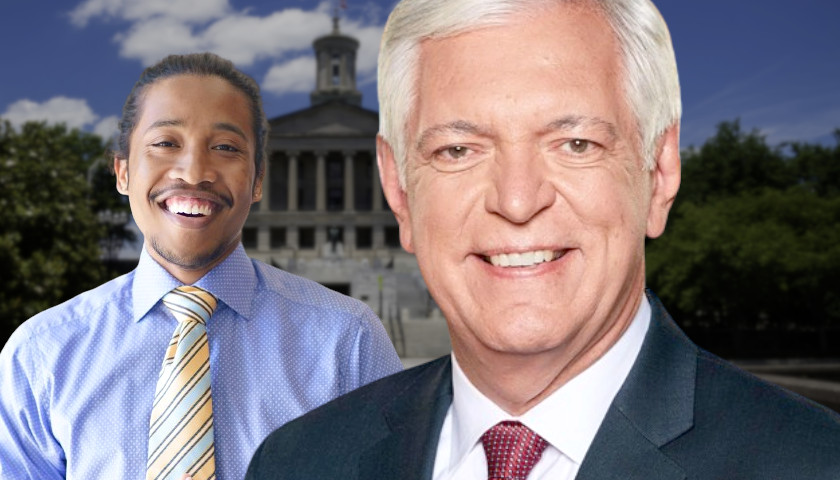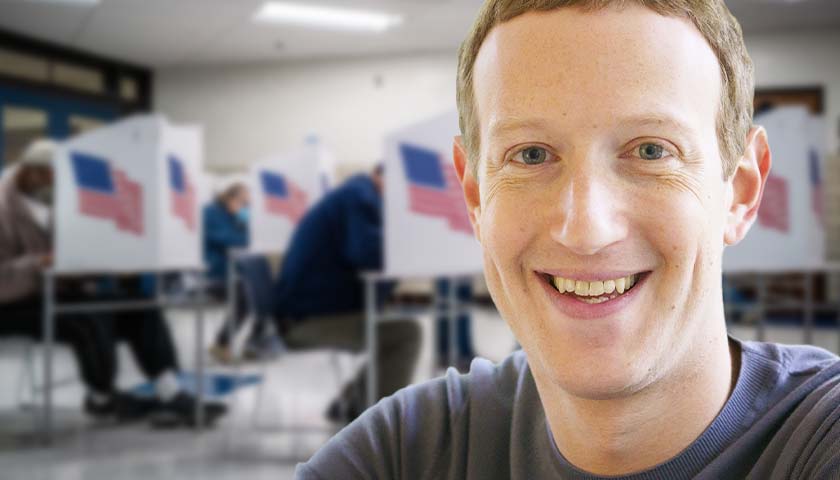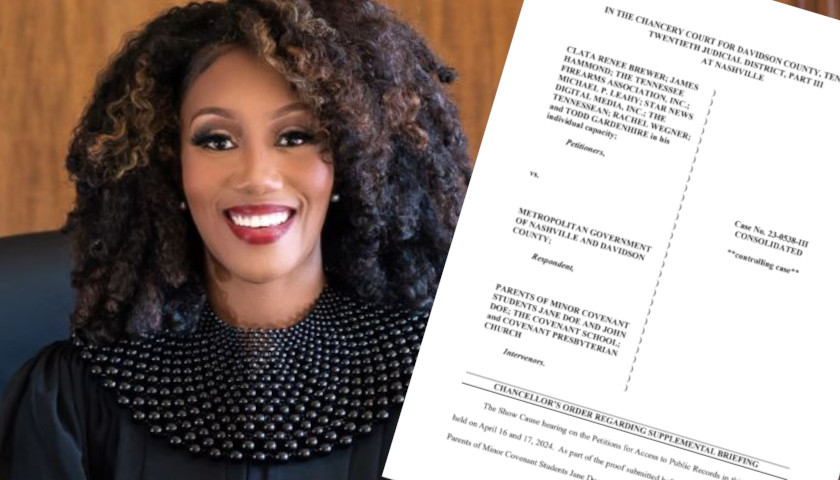Live from Music Row Monday morning on The Tennessee Star Report with Michael Patrick Leahy – broadcast on Nashville’s Talk Radio 98.3 and 1510 WLAC weekdays from 5:00 a.m. to 8:00 a.m. – host Leahy welcomed the original all-star panelist Crom Carmichael to the studio to discuss Big Tech censorship as it relates to being a private company versus common carrier and what that means for federal regulations.
Leahy: Crom, you know, one of our guests here, you kind of liked his last name. Professor of law at Columbia Law School, Philip Hamburger.
Carmichael: Yes.
Leahy: He’s an expert on the rise of the deep state, the administrative state. And he’s a champion of pushing back against that and basing our actions on the Constitution. I note that he’s written an article with Claire Morel for The Wall Street Journal on Big Tech and censorship.
Carmichael: And that was July 31st. And when we interviewed him, which would have been a month – or a month ago, we also interviewed Naomi Wolf. Now Naomi Wolf has – since we interviewed her – has actually even been canceled even more.
And so this is going to be a very interesting lawsuit. The article that Philip Hamburger and Claire Morel have written in The Wall Street Journal argues that Facebook and Twitter and all these giant tech companies are really more like common carriers. Because the common carrier, by the way, can be a private company.
In fact, they all are private companies, but they still are regulated by the federal government. For example, Verizon cannot cancel your phone service if they disagree with what they think you’re going to say on the phone. They can’t do that. That’s not allowed.
Leahy: That’s good because they would have canceled me a long time ago. (Chuckles)
Carmichael: So my point is they can’t.
Leahy: They’re not my carrier.
Carmichael: They can’t. I’m not sure. So you have these big tech companies that are essentially canceling their service to people based on their political opinions. And it isn’t based on whether or not they’re right or wrong. It is truly based on their political opinions. And that’s why when you heard Jen Psaki say that the administration is working with Facebook.
Leahy: Working with Facebook.
Carmichael: Yeah. On misinformation. Naomi Wolf has said that she has tried to put out the word on the facts about COVID and immigration, and they cancel that. Now, those are facts. That it isn’t incorrect or misinformation. The disinformation is incorrect. It’s false information. Misinformation is whatever I don’t like.
Leahy: Right.
Carmichael: And I think that Trump’s lawsuit and the other thing that he’s writing about, the Hamburger and Claire Morel are writing about, is the state laws.
This article is focused on the state laws that say that if you operate in our states, you cannot discriminate based on what people’s opinions are. It’ll be very interesting to see how those lawsuits work because Florida has already passed that law.
Leahy: But the courts have struck it down.
Carmichael: They hadn’t gotten to the Supreme Court yet. A court has struck it down.
Leahy: Let me follow up on that. Here’s what they said about that particular.
Carmichael: Sure.
Leahy: A district court struck it down. Here’s what Philip Hamburger has said about that. ‘The recent court dependent questioning the Florida anti-censorship statute noted that in censoring some speech the tech companies are choosing what speech they will convey. From this, the court concluded that the company’s platforms and services were more akin to newspapers than common carriers.
Unlike a newspaper, these platforms and services are offered to the public for the conveyance of their speech. Unlike a newspaper, they serve the function of a common carrier. What is more, they enjoy market dominance.
Carmichael: This is what Hamburger told us when he was on our call. That was before …
Leahy: Trump’s lawsuit.
Carmichael: And before Florida’s decision. And so this will work its way up in the courts, and we’ll find out. And I think ultimately it will end up in the Supreme Court. The Supreme Court obviously takes very few cases.
Leahy: It’ll be the Supreme Court probably in the 2022 to 2023 session.
Carmichael: I think it’ll be sooner than that.
Leahy: Before the next 2021 or 2022.
Carmichael: Yes. I think it will be before the ’22 election.
Leahy: Okay. So here’s the problem. I’ll give you two words that are a problem. The first word is John. And the second word is Roberts.
Carmichael: No. This will be a very interesting court case. This will be an entire court case.
Leahy: Do you think Roberts will surprise us?
Carmichael: I think the whole Supreme Court might surprise us. But here’s the difference. A newspaper has its own opinions, and it controls everything in the newspaper, and everybody knows that. But in the case of Facebook, Facebook allows some people to express their opinions and disallows other people to express their opinions just because they don’t like the opinions.
Well, that’s not the same thing as a newspaper. I think the question will come down to, are these entities more like common carriers or more like newspapers? And if they are judged to be more like common carriers, then they will lose their ability to censor. And they are censoring.
Let’s be very clear about what they’re doing. They are censoring. If they were censoring all Black people from conveying their opinions, they would be guilty under the Civil Rights Act violation. There would be a violation of the Civil Rights Act.
So now the question is, can they discriminate against people based on their opinion? Can they discriminate against a Black person based on that person’s opinion? Like, could they cancel Ben Carson if he wrote an article about COVID?
He is an eminent physician and what he would – it would likely be entirely accurate, but it would be different from what the Biden administration would want. Would Facebook have the right to cancel him?
Leahy: Here’s what I think about this, Crom. I think you’re right. I think ultimately all of these Big Tech lawsuits, ultimately, in one version or another will go to the Supreme Court.
Carmichael: Yes.
Leahy: There’s no question about that. What makes me nervous about that is the tendency of the chief justice to make political rather than legal decisions. That’s what makes me nervous.
Carmichael: I think the opinion may be a bit watered down, but I would be astounded if the Supreme Court ruled in favor of censorship because that would be what they would be ruling in favor of. They would be ruling in favor of censorship.
Leahy: I was astounded in 2012 when the Supreme Court ruled in favor of Obamacare.
Carmichael: But you have three different justices on there now.
Leahy: And I am disappointed in all three of them.
Carmichael: I am more optimistic, perhaps realistic, maybe. We don’t know.
(Inaudible crosstalk)
Carmichael: I think it will work its way up through the courts. Philip Hamburger’s article is a very interesting one. And poor Naomi Wolf. She was a leftist, and she’s going to be in our camp now.
Leahy: She’s a realist now. (Chuckles)
Listen to the full third hour here:
– – –
Tune in weekdays from 5:00 – 8:00 a.m. to the Tennessee Star Report with Michael Patrick Leahy on Talk Radio 98.3 FM WLAC 1510. Listen online at iHeart Radio.








